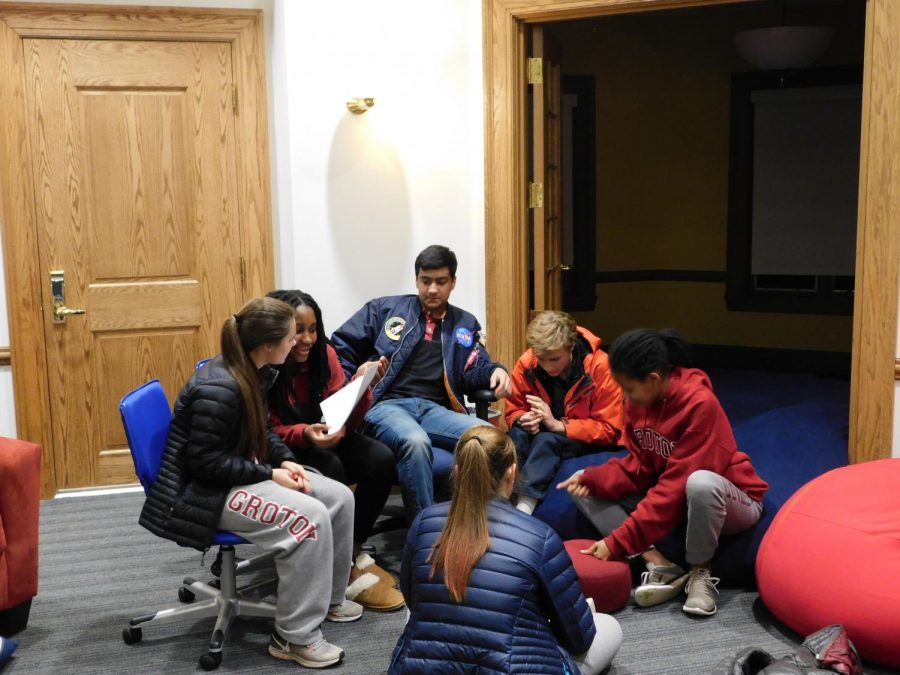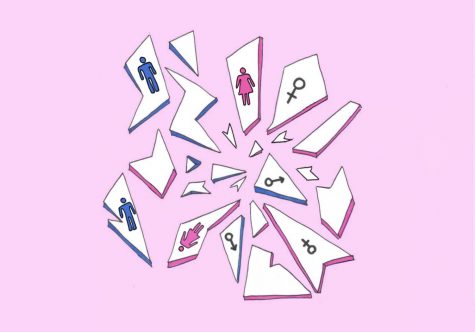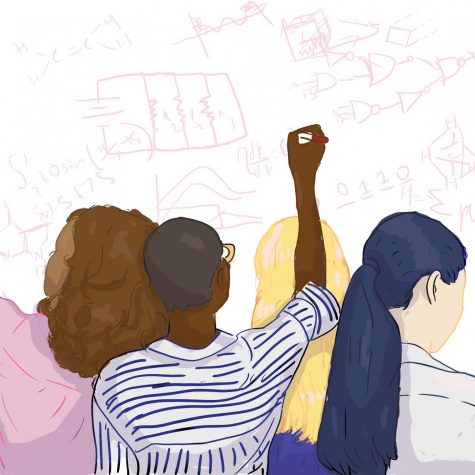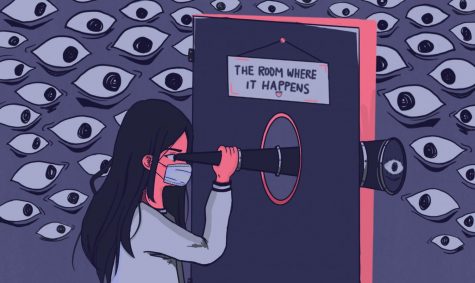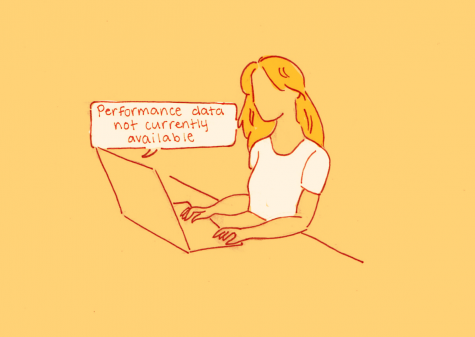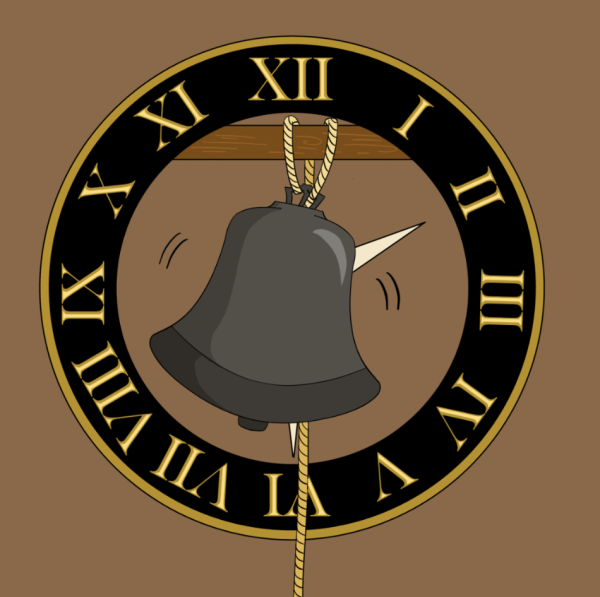Peer Counseling: An Analysis
Peer Counselors meeting in the Wellness Center.
The peer counseling program undeniably maintains and promotes the mental wellbeing of students on the Circle, but shortcomings in the system prevent certain groups of students from reaping its benefits. Lower Schoolers have observed the efficacy of peer counseling; for example, Jacinta Lopez Guzman ’22 expressed her appreciation for the Third Form Wellness meeting about exam week conducted by peer counselors because “we got study tips and heard the perspective of our group leaders.” On the other hand, students in Upper School are often unable to make full use of the program.
For one, peer counseling is ineffective for many fifth and sixth formers. Unlike Lower Schoolers, they do not have a designated weekly or monthly time to meet peer counselors, so the initiative to speak to one about a concern rests on the individual’s shoulders alone. Office hours on Friday evenings are presented as an alternative to regular meetings such as Wellness; however, this solution fails to take into account Upper Schoolers’ increased workload and various commitments, which result in less free time for discussions. Alex Kogler ’19 noted that “if one is to use a peer counselor, they’re going to address it on their own time, not during scheduled office hours.” Moreover, if students prioritize work over speaking to a peer counselor, a problem may escalate because it is not being addressed.
Placing peer counselors in each dorm may compensate for Upper Schoolers’ dearth of time within which to meet them. Unfortunately, this policy falls short when considering sixth formers with only fifth form peer counselors in their dorm. As peer counselor Katie Stovall ’20 commented, “I can imagine it being more difficult for a sixth former to come to the fifth form peer counselor than a fourth former going to the fifth former. This issue is particularly prevalent when considering that five out of twelve, or almost half, of Upper School dorms only have fifth form peer counselors. While peer counselors are presented to Lower Schoolers as older role models and confidantes, Upper Schoolers can experience unease in seeking advice from a student their own age or younger.
New fifth formers in particular may face difficulties in approaching a peer counselor. Because they enter in a form with no Wellness program, the activity with which peer counselors are affiliated, they lose a crucial opportunity to connect with peer counselors. Therefore, these students may gravitate toward a friend or family member for advice instead. Ayanda Tambo ’19, who arrived on the Circle as a new fifth former, observed that “I found myself going to family members and my faculty advisor for advice more than peer counselors.” For many students new to Upper School, this lack of consistent interaction with peer counselors renders the program futile.
Furthermore, while returning students have the benefit of familiarity with peer counseling and Wellness, new Upper Schoolers lack firsthand knowledge of these systems and remain relatively uninformed. Zenande Mdludlu ’21, a new fourth former, remarked that “the peer counselors don’t really feel different than other students – until recently, I didn’t even know they had training.” While peer counseling was mentioned briefly in orientation for new Upper Schoolers, the information was only cursory. If the goals and processes of peer counseling were explained in greater detail to new Upper Schoolers, more of them would place their trust in the peer counseling system.
Regarding solutions to the flaws in the program, fifth and sixth formers might benefit from brief monthly check-ups with peer counselors, either in groups or individually, to reflect on their state of mind and address issues that may have been previously neglected. As for new admits to fifth form, weekly or monthly group meetings with peer counselors could be established during the fall term. This endeavor would serve the dual purpose of allowing them to establish a comfortable relationship with at least one peer counselor, and of helping these students adjust to Groton, just as Second and Third Form Wellness helps new Lower Schoolers settle into the rhythm of the school.
Overall, peer counseling has done much to maintain and improve the mental health of students at Groton. It is not, however, infallible, and addressing the system’s deficiencies will enable it to support students on the Circle who do not currently enjoy the full benefits of the peer counseling program.


